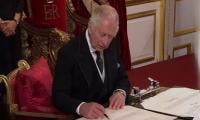There exists resentment against the Federal Board of Revenue (FBR). Centralisation of authority occurred in administration. New income tax ordinance 2001 was introduced as a modern legal framework. Infrastructure changed to look like corporate outfits. This was a paradigm shift.
Unfortunately, it had some unintended consequences, which incurred unanticipated collateral damages to system resulting in the present-day resentment. The very purpose was a sweeping change and complete overhaul of the system, dissociating itself away from the past thought to be bad and unwanted as we feel today. As unintended consequences, it developed gross functional anomalies like shrinking of base rather than broadening of base, deterioration of compliances to the worst in the history, and tax to GDP ratio had a free fall.
File movement on multiple desks, diluted the officer’s authority and ultimately created disciplinary issues. This became the major cause of corruption rather than combating it. Worst load shedding in the country at that time falsified the dream of paperless environment. Transforming taxpayer and tax collector relation to an interface with a faceless machine evaporated.
The change created a new department of Inland Revenue Services (IRS) and income tax, as service was disbanded. The IRS got a sway over sales tax and federal excise in addition to the income tax for one window solutions and cross matching of information, cross match and catch new taxpayers and calculating income of existing taxpayers for detecting concealments of incomes and assets. However, the number of concealment cases fell sharply as against the goal.
The change boosted the revenue to a trillion in absolute terms for the, first time in the history of FBR, hailed and used as a justification to continue the change. Everyone, including myself celebrated, but without knowing that the most authentic parameter to gauge the success of reforms, tax to GDP ratio was steeply falling. The salutary impact in the beginning started phasing out with time. The drop in the tax to GDP ratio was pointed out to the bosses of that time, (privy to the discussion) and was brushed aside as the initial teething problem and adjustment phenomenon which was to be corrected with time. However, it was never corrected till today despite all efforts and we are still way low on the table if compared with the world and region. The number of amnesty schemes brought after the change is the evidence that it has failed to tap all domestic resources and even today, we are back to square one. We may be repeating it again tomorrow if not done as suggested.
Issues for consideration
There is no doubt in my mind that the present reform committee will be taking care of all the offshoots/ backlash of aggressive reforms in the past. They are also sensitive to the broadening of base and reducing tax burden on existing tax payers.
The separation of policy board was an act in the right direction, but it was enacted in the FBR in the previous reforms. Frankly policy always remained with the Finance Ministry. The FBR was only the secretariat for doing the spade work for them so it was just a cosmetic change.
The team must analyse the malaise and ailments of the institution by diagnosing them one by one and then curing in a scientific manner based on data, home-grown solutions and experience on the ground. It is necessary, as ecology of administration is a full-fledged subject taught in all management schools in the world. The fact of the matter is that the tax base is very narrow, and taxpayers on record are overburdened.
The best system of taxation is more people paying and lesser rate of taxes. Therefore, the urgency of the reforms should be the treatment of this important symptom of the illness, resulting from low/no outreach of the department on one hand and policy changes on the other.
Tax culture in the country has also not developed and paying taxes are not considered a matter of pride, rather the other way round. It is considered fine to hide tax, considered as penalties by the state. Nobody is named and shamed on the basis of tax evasion. Such culture is linked to the luxurious spending, misuse of their money, cars, bungalows and overbearing lifestyle of the political and bureaucratic elite. Moreover, taxes are not providing security, education, health and other social services.
They are considered as tax-saving and not tax evasion creating a moral base for evasion. The attitude of some officers and departmental processes, discretion of the taxmen and strong-arm tactics create resistance in taking the taxpayer away from paying taxes. Most of these are because of lack of training in public dealing and exposure embargo on tax officers to move horizontally in the provinces and other departments of the federation. Trust deficit between the taxpayer and collector, due to chasing wildly fixed targets, mostly not based on available tax and supporting resources with the officer, must be considered.
The physical absence of taxmen thus finishes the writ of the service. The universal principle of visibility of taxmen to taxpayer for more tax has been disregarded. Moreover, the territorial concept of administration is also a problem. Broadening of tax base is a true challenge for the success of any form of future taxation system in Pakistan. The economy of Pakistan consists of around 45 percent as an informal cash economy. This makes this challenge more formidable. Documentation is fundamentally a government job outside the preview of the FBR, and it consists of a number of actions required to be taken by the government. Since bashing the FBR has become a fashion all over the country at political rallies, by traders, in the media etc, the FBR has been pushed on the back foot. Whenever one department starts using the authority of others, the job remains undone, only the unscrupulous start growing in such a situation.
The stark reality is that anti-smuggling role has been taken over by the police, FC, rangers, coast guards; their own jobs remain to be done, by whom nobody knows.
The custom department was left with nothing more than the blame of corruption which in most of the case was done by the encroachers.
The writer is a former FBR chairman.
The image shows a poster of Syngenta Pakistan's 'CropWise Grower' mobile application. — Syngenta...
The undated image shows the name of the Bank of Punjab written on one its branches. — APP FileKARACHI: The Bank of...
ABHI, a financial technology company, partners with Soorty Enterprises. — Facebook/ProPakistaniKARACHI: ABHI, a...
This representational image shows Gold bars. — AFP/FileKARACHI: Gold prices in the local market dropped by Rs1,600...
A currency exchange dealer counting $100 bills. — AFP/FileAs any old-school currencies trader will tell you: buy...
A Pakistan International Airline aircraft takes off in this undated picture. — Radio Pakistan/FileLAHORE: We have...







